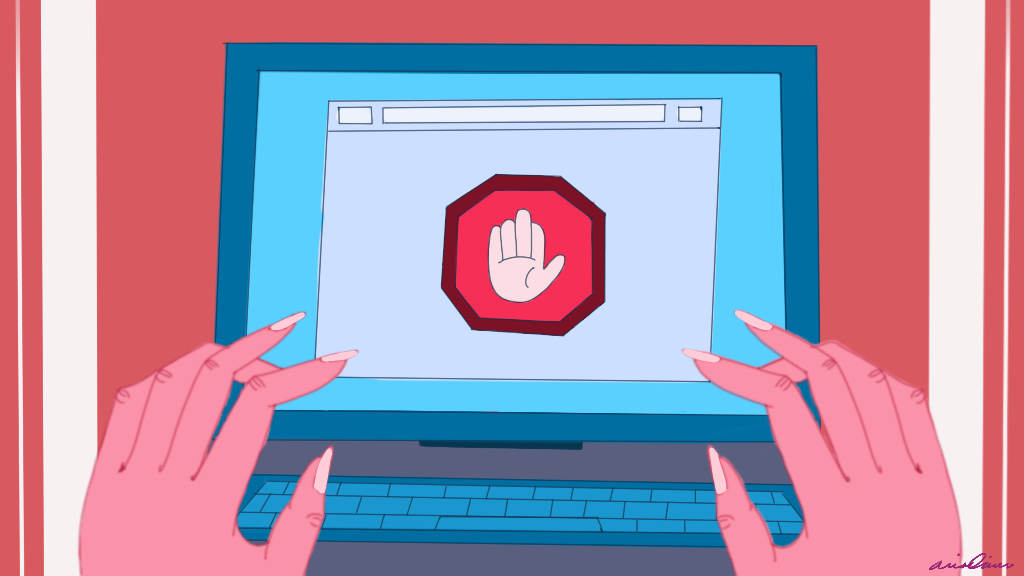Censoring the Internet
by Lucas Kohorst | published Oct. 9th, 2018
We browse through the internet constantly and not often are we blocked or restricted from accessing websites or certain content. However, that is not the case in many countries. According to Justin Pelletier, a professor and business director at the Center for Cybersecurity, internet censorship is the concept of limiting the flow of information in order to better protect the population or, in most cases, to protect the country’s interests.
Censorship around the World
Reporters without Borders,
The United States does not block access to information, news sites, or social media like China and others do. That being said, the U.S. remains on the list in large part due to Edward Snowden's leaking of NSA information, which exposed the many ways in which the U.S. government was surveilling its citizens.
Garret Arcoraci, a professor from RIT's Department of Information and Science Technologies, disagreed with America's position on that list.
"I don't think we should be on the list just because I don't think we restrict our news information," he said.
Global Internet Regulation
The internet can be accessed globally but is regulated based on geopolitical regions. For example, the General Data Protection Regulation (GDPR) was recently passed in the European Union and is only effective in countries that are part of the union. However, many foreign companies are seeing it affect their products because of the global nature of the internet.
The GDPR is a small step in the right direction towards internet governance because it does not limit users. Instead, it gives them more rights over their information.
Pelletier, believes that laws like the GDPR is probably the closest the world will see to a unified internet law. Arcoraci concurred. At the very most, he believed that there was only one organization he could envision implementing a global system.
"The [United Nations] would be the governing body that would be responsible," said Arcoraci.
On the contrary, Pelletier had a harder time imagining a a piece of legislation that would be agreed on at the U.N.
"SORM is an example of ... I don’t think Russia would even come close with us to agreeing with us on all these effective limits we should place ... concerning privacy," said Pelletier. SORM is a Russian regulation that enables the country to surveil both telephone and internet communications of the citizens.
Arcoraci and Pelletier are both very doubtful of a unified law but remain hopeful.
No matter how your internet is governed, we are all connected — meaning laws in one country will certainly affect and shape the internet in another country.
Censorship at Home
Just as censorship varies from country to country, it takes many different forms from household to household.
YouTube Kids is among several apps that offer a version for children and works by censoring videos that are deemed inappropriate by YouTube's algorithms. That being said, Pelletier was skeptical.
"[Youtube's algoritms are] somewhat helpful but, it also creates a false sense of trust in the content," he said.
In order to make the Internet a safer place for children, Arcoraci proposes that we should introduce a rating system for websites, so parents are able to better determine if it is appropriate.
"They do it for television shows, they do it for music, they do for movies, they should do the same for web content," Arcoraci said.
A rating system would be an interesting approach to internet censorship for children as it could alert parents to explicit or immoral content. However, there are the factors of what the rating system would be based on and where would the rating be displayed. Arcoraci proposes that each website have a homepage suitable for all ages and on it displays the rating for the content on the website.
Moderating the internet for children is a highly debated topic as there are many ways to go about it. The government or organizations can limit certain content that reaches your child's eyes; it could be entirely left up to the parents or a mix of both. Overall, no matter what companies or organizations do, parents should always monitor their children's browsing to make sure it fits with their morals and beliefs.
Preventing Censorship
If you want to take matters into your own hands, Arcoraci suggests that you use a Virtual Private Network. A VPN is defined as an extension to a private network that enables users to privately send and receive data across shared or public networks, allowing for more functionality and security.
The internet is a fairly safe place as it is in the U.S. and information is readily available and easily accessible. Other countries are not as lucky and internet users are actively monitored and restricted. The internet is a global network and restrictions that apply to one country can affect and shape internet regulations and use in another. The internet connects us allowing for fast communication and information exchange and behind the scenes, every user plays a small part in the direction of the internet.



